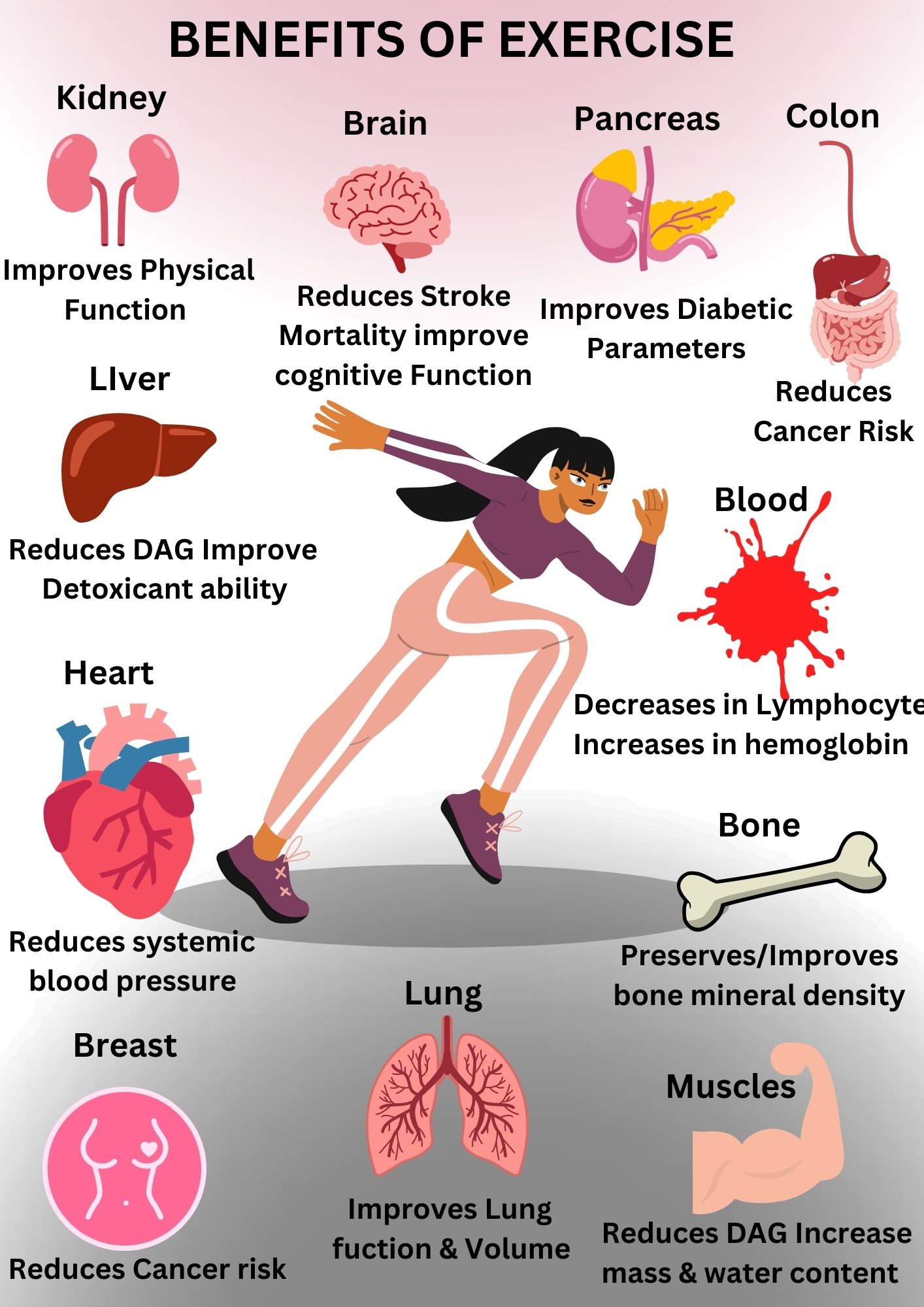Exercise is a fundamental aspect of a healthy lifestyle, and its benefits extend beyond simply maintaining physical fitness. Regular physical activity has profound effects on the body at a medical level, influencing various systems and promoting overall well-being. In this article, we delve into the science behind how exercise impacts the body and explore its numerous health benefits.
One of the most evident physiological responses to exercise is an increase in heart rate. As you engage in physical activity, your heart pumps more blood to supply oxygen and nutrients to the working muscles. Over time, this regular cardiovascular exercise strengthens the heart, making it more efficient and reducing the risk of cardiovascular diseases such as heart attacks and strokes.
Exercise also plays a crucial role in maintaining a healthy weight. When you engage in physical activity, your body burns calories, helping to control body weight and reduce the risk of obesity. Another significant impact of exercise on the body is the improvement of mental health. When you exercise, the brain releases endorphins, which are natural chemicals that help elevate mood and reduce stress and anxiety. Regular physical activity has been shown to alleviate symptoms of depression and enhance overall psychological well-being. Additionally, exercise improves cognitive function and memory, leading to better mental acuity and a reduced risk of age-related cognitive decline.
Exercise also has a profound effect on the musculoskeletal system. Weight-bearing activities such as running, walking, or strength training stimulate the bones, making them stronger and more resistant to fractures. Regular exercise also helps maintain muscle strength and flexibility, reducing the risk of falls and injuries. By engaging in weight-bearing exercises, you can enhance bone density and reduce the risk of conditions like osteoporosis.
The immune system also benefits from regular exercise. Physical activity boosts the production of antibodies and white blood cells, which play a crucial role in fighting off infections and diseases.
Exercise even influences the body at a cellular level. Studies have shown that physical activity can enhance mitochondrial function, which are the powerhouses of our cells responsible for generating energy.
Regular exercise improves the efficiency of mitochondrial energy production, leading to increased endurance and reduced fatigue. Moreover, exercise promotes better blood circulation, delivering oxygen and nutrients to the cells while removing waste products efficiently.
In conclusion, understanding the medical impact of exercise on the body highlights its significance in maintaining overall health and well-being. By incorporating exercise into our daily routines, we can unlock the remarkable benefits it offers and improve our quality of life. Remember to consult with healthcare professionals before starting any exercise program, especially if you have underlying health conditions, to ensure a safe and effective fitness regimen.
The author is the Founder at The BodyLine Gym.

















